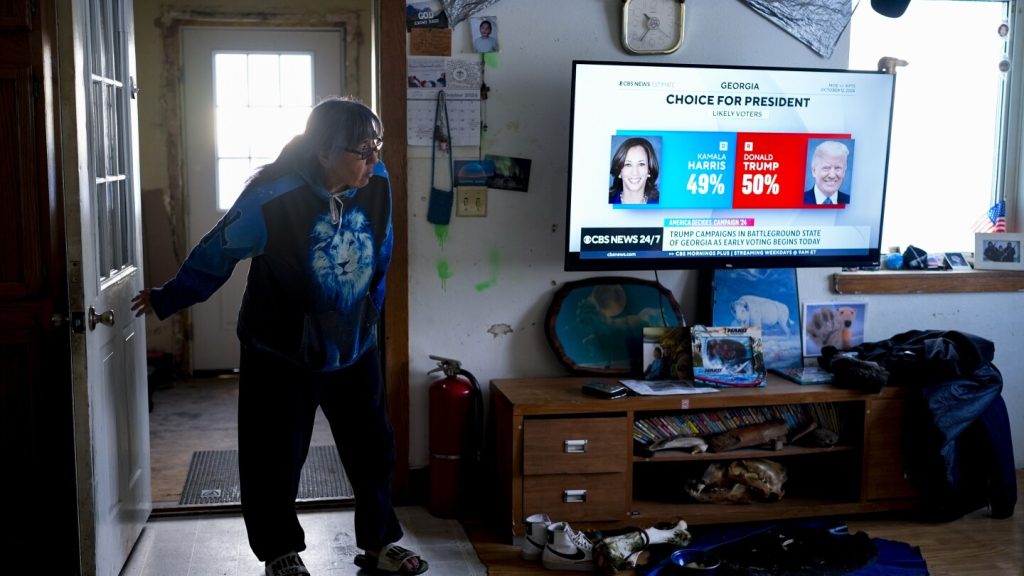In the remote Native village of Kaktovik, Alaska, the lack of poll workers during the August primary election left 189 registered voters without a polling station. This situation was not unique to Kaktovik, as other Alaska Native villages also faced challenges with polling sites during the primary. The implications of these issues could have a significant impact on the upcoming November general election, where control of Congress is at stake.
Despite the lack of access to voting during the primary, residents of Kaktovik turned their attention to the start of whaling season, a critical aspect of their subsistence lifestyle. The village, located on Barter Island in the Arctic National Wildlife Refuge, is home to Inupiat residents who rely on hunting caribou and bowhead whales for sustenance. The potential for drilling for oil in the refuge is a major concern for the community.
Alaska Native voters have faced challenges with voting in the past, including language barriers and issues with absentee ballots. The Alaska Federation of Natives has raised concerns about mail service affecting the ability of residents to vote. In remote villages like Kaktovik, where access to transportation is limited and mail delivery is unreliable, voting can be a complex process that requires significant effort to ensure everyone has the opportunity to vote.
Efforts are being made by state, regional, and local officials to address the issues with polling sites in Alaska’s remote villages, including Kaktovik. While the state elections division is working to ensure that precincts have workers and polling sites open on time, there are ongoing challenges in finding trained staff to facilitate the election process. The disenfranchisement of Alaska Native voters is a concern that requires attention and action to ensure fair and accessible elections.
In Kaktovik, residents are determined to prevent future disenfranchisement by advocating for better election staffing and training within the community. City officials are exploring ways to ensure that polling sites are adequately staffed in future elections, so that incidents like the closure of the polling station during the primary do not happen again. The importance of fair and equitable voting rights for all individuals, regardless of their location, is a central theme in the efforts to improve the election process in remote Alaska Native villages.
The challenges faced by Alaska Native voters in remote villages like Kaktovik highlight the need for ongoing support and attention to ensure that all residents have the opportunity to participate in the democratic process. As the November general election approaches, efforts are underway to address the issues with polling sites and staffing to prevent further disenfranchisement of voters. The community of Kaktovik, like many others in Alaska, is advocating for fair and accessible elections that uphold the rights of all voters.


